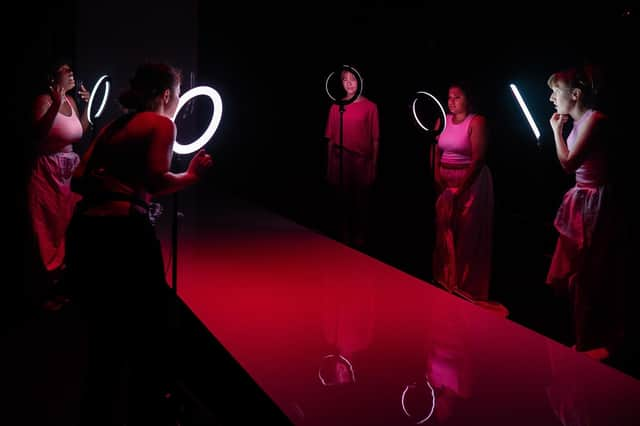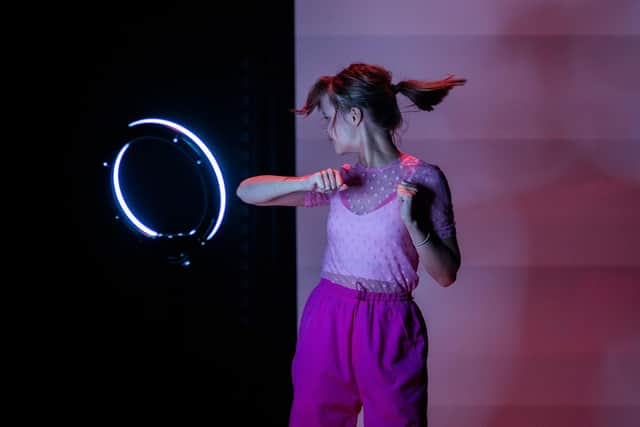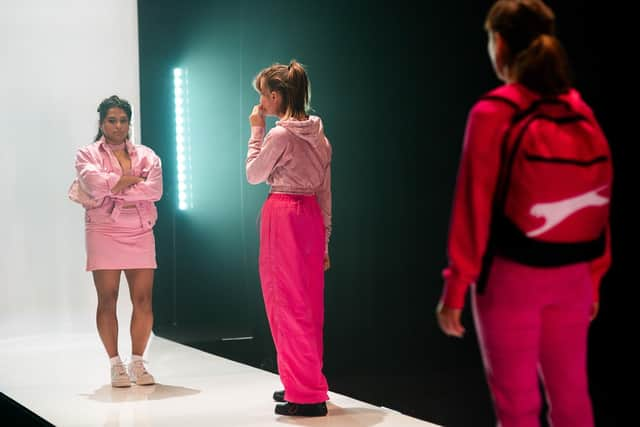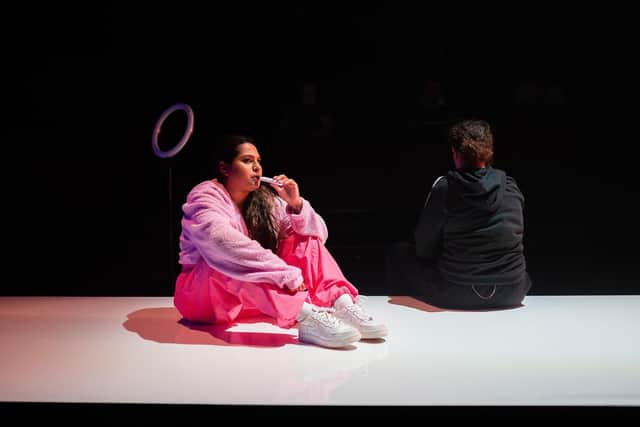Review: We Could All Be Perfect at Sheffield Theatres


“You are so beautiful, and so smart, and it kills me that you don’t think you’re good enough. Like, we have to always be extraordinary, but somehow we’re always doing it wrong.”
Doncaster-born Hannah Morley’s debut stage production We Could All Be Perfect, directed by Sheffield-based Ruby Clarke, at Sheffield Theatres’ Playhouse for the next two weeks, is like that speech but better.
Advertisement
Hide AdAdvertisement
Hide AdWhere Ferrera mused over well-worn female contradictions – “You have to be thin, but not too thin” – Morley’s thought-provoking play examines far less obvious, and much more uncomfortably complex, female truths.


In 90 minutes it turns the spotlight not just on genitals, first kisses, fringes and fractions (all the usual areas of interest for teenage girls the world over) but also the intensity of girls’ friendships, the power – and powerlessness -of girls’ often unfulfilled potential, and also the visceral viciousness of girls’ rage.
There’s a barely-concealed violence beneath the quick-change, all-pink, costumes worn by the all-female cast of five.
The play, which started life through Sheffield Theatres’ Open Script Submissions scheme, is a prescient piece of writing.
Advertisement
Hide AdAdvertisement
Hide AdJust this month a poll for Girlguiding found happiness among young women is at its lowest level in 14 years. Ninety per cent of seven to 21-year-olds said they feel worried or anxious, bombarded by online harms, the pressure to look perfect, and impotence in the face of constant dire warnings about climate change. One girl told researchers: “I am scared our world will fall into ruins and we won’t be able to do anything about it.”


In We Could All Be Perfect, that’s exactly what has happened. In scenes set in the future the environmental apocalypse has dawned, but it’s girls who are pulling together to forge a brave new republic (they haven’t yet decided if they’ll let boys be involved).
The auditorium at the Playhouse, normally in-the-round, is transformed for this production into a room of two halves, split down the middle by a dazzling white runway.
The lights fizz, the room goes black, and the scene has changed again – one disjointed electric vignette after another of anecdotal episodes which, added together, make up all the disparate things it can be, and feel, to grow up a girl.
Advertisement
Hide AdAdvertisement
Hide AdA talented cast: Anshula Bain, Heather Forster, Rosa Hesmondhalgh, Alice Walker and Jada-Li Warrican play multiple parts that span the centuries, enacting the experiences, emotions and preoccupations of girls throughout time.


Joan of Arc gets referenced, Jane Austen and Greta Thunberg too, alongside all the nameless teenage girls since forever – screaming over boybands, practising dance routines, whipping themselves into boarding school deliriums playing LPs backwards, applying make-up, shoplifting lipstick… agonising over body image… fleeing domestic violence… plotting massacres in their high schools.
It’s fierce, it’s funny, it’s unsettling and it’s heart-achingly sad.
And it’s another brilliant example of the exceptional new local writing being championed yet again by Sheffield Theatres.
- We Could All Be Perfect, Tanya Moiseiwitsch Playhouse, Sheffield Theatres, until Saturday October 14